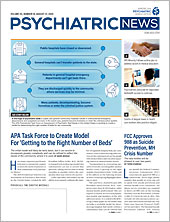When Zak Sandler was 12 years old, the young pianist—a student since he was 5 at the elite Levine School of Music in Washington, D.C.—observed that when he adjusted the piano lid in a certain way, he could see the wooden piano keys extend to the end of the interior of the piano. And some of them were bent or crooked in an interesting way to accommodate the metal structures in the instrument.
Fascinated, he began to experiment musically, playing the crooked keys. With the advice and encouragement of the late Irena Orlov, Sandler’s mentor and teacher at Levine, he began to build on this musical experiment, embellishing it until he had composed an entire symphony: “The Crooked Key Symphony.”
It went on to win an award from the Friday Morning Music Club, an organization of music lovers that has promoted classical music in the Washington area for over 130 years. The piece was also performed by the Mount Vernon Youth Orchestra in northern Virginia.
“The Crooked Key Symphony” was an early indication of a fertile musical mind that would be drawn to the creative potential in brokenness, in that which was bent or crooked.
Some eight years later, as a promising student of music and drama at Yale, Sandler experienced an episode of mania. Recognizing a crisis, his mother and father (an associate clinical professor of psychiatry at George Washington University School of Medicine) drove to New Haven. Sandler was admitted to the hospital and was diagnosed with bipolar disorder.
In 2015, he was hospitalized again. “It was then I thought, ‘Well this has happened twice now, so I guess I should just accept it as a part of who I am.’ ”
Today, Sandler is a successful musician, composer, dramatist, and teacher. He has played keyboards on Broadway for “Wicked,” “Mean Girls,” “The Color Purple,” and “Motown.” With his collaborator, Adele Powers, he wrote the lyrics and music for “Anthem,” a musical about why Americans sing the national anthem, that ran at the 2014 New York Fringe Festival and the Chicago Musical Theater Festival. He is now working on commission with Powers on a musical comedy about Jewish celebrations called “Happy Challah Days!”
Sandler speaks openly and publicly about his psychiatric condition. He addressed the 2017 National Alliance on Mental Illness (NAMI) National Convention in Washington, D.C., and the NAMI New York State Conferences in Albany in 2017 through 2019. He is the recipient of the 2018 NAMI New York State Young Leader award.
The musical he considers his most personal, “Inside My Head,” is a lively, poignant, and funny portrait of a man and his relationship with his bipolar condition. In it, Sandler imagines the changing aspects of his mental state as people—his depression is Doug, his mania is Marc, his paranoia is Patty.
In this way, Sandler hopes to make his condition familiar to those who know those voices too, even if they are not as loud or overbearing or unmanageable as they are for individuals with a diagnosable psychiatric condition.
“I wanted to convey what it is like to go through these experiences of depression and mania, and maybe help people see that it is more relatable than they may think,” he said.
(A video of a talk Sandler gave at Staten Island University Hospital/Northwell Health, followed by an abbreviated performance of “Inside My Head,” is available on YouTube; see end of article).
‘There Never Was a You Without Me’
Sandler accepts the term “bipolar,” but not the term “disorder,” and he does not like to use the word “illness.” “I think these words add to the stigma of mental health conditions and imply there is something wrong with me that needs to be fixed. Bipolar can’t be ‘cured,’ and that makes sense—it would be like trying to cure guilt, anger, or jealousy.”
For Sandler, whether the condition that psychiatrists call “bipolar disorder” may actually be a core feature of his own identity is a motivating source of philosophical and creative speculation. “There never really was a you without me,” sings the voice of Marc, Sandler’s mania, in “The Most Creative Person in the World,” a confrontation between the musician and his condition.
“I feel like my bipolar is part of who I am, just as my emotions are a part of me. And it’s important to build relationships with each of them, whether unique to bipolar or not. I’ve started having conversations with my anger, my shame, and my sadness whenever they come up. Like children, they each need to be heard and feel cared for.”
The musician is passionate about his beliefs, but he is no militant. “I speak for myself only, and I know different people have a different experience,” he said. “I know people with mental conditions who feel strongly about using the terms ‘illness’ and ‘disorder,’ who feel that when we don’t use those terms, we overlook the struggle and suffering they have had in their lives. I get that.”
He also does not hesitate to talk about his use of lithium as well as other prescribed psychiatric medications. He devoted a song in “Inside My Head”—“Brain Magic”—to the potency of lithium and to the uncertainty about how it, and many other medications, work.
Sandler is unstinting in his gratitude for his father’s profession of psychiatry. “I do believe that bipolar is genetically and biologically based, triggered by stresses and environmental factors, and that medications work,” he said. “Psychiatrists have literally saved my life and allowed me to do the work I am doing.”
Today, he is working on a documentary video series titled “Insanely Talented,” exploring the connection between creativity and psychiatric conditions through the testimony and artistic work of contemporary artists.
In talks at the NAMI conferences he bears a message—about people with psychiatric conditions and their creative potential—that he believes may be especially valuable for young, aspiring physicians to hear, and he invites educators to contact him (see end of story). “There may be other ways I could connect by talking with medical students, helping them see this condition from an inside perspective,” he said.
The musician who as a 12-year-old discovered that crooked keys make beautiful music today would have psychiatrists know that he and others like him are more than the sum of their symptoms. “Get to know us as people,” Sandler advises. “What works best is when we collaborate together.”
For those who also contend with the competing personalities within—mania, depression and paranoia—as well as fear and joy, he hopes “Inside My Head” will be an inspiration.”
“My goal is for them to hear my story and be inspired to tell their own.” ■
Information about Sandler, including his music and current projects and his talks on having a psychiatric condition, is posted
here.
A video of “Inside My Head” performed at Staten Island University Hospital is
here.

